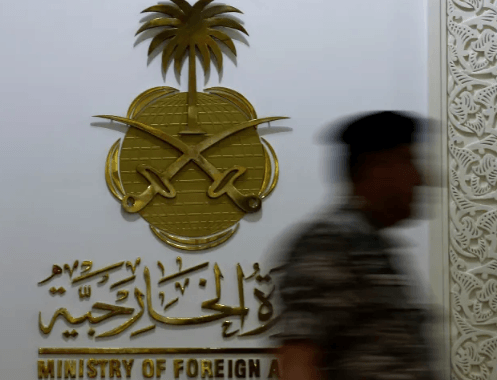
Saudi Arabia has summoned Denmark’s charge d’affaires over recent burnings of the Quran in Copenhagen.
The Danish diplomat was handed a memo that “includes a demand from the kingdom to stop the disgraceful acts that violate all religious teachings, laws and international norms,” the Gulf country’s foreign ministry said in a statement on Friday, without identifying the Danish official by name.
KEEP READING
list of 4 itemslist 1 of 4
Turkey’s Erdogan arrives in Saudi Arabia to kick off Gulf tour
list 2 of 4
Saudi Arabia buys Turkish drones during Erdogan’s visit
list 3 of 4
Israel prays for ties with Saudi Arabia, Herzog tells US Congress
list 4 of 4
White House adviser Jake Sullivan meets Saudi crown prince for Jeddah talks
end of list
The kingdom’s protest comes after far-right activists carried out a number of public burnings of Islam’s holy book over the past week in front of the Iraqi, Egyptian, and Turkish embassies in the Danish capital.
On Monday, two members of the ultra-nationalist Danish Patriots stomped on a copy of the Quran and set it alight in a tin foil tray next to an Iraqi flag.
Danish Foreign Minister Lars Lokke Rasmussen condemned a similar demonstration by the group the previous week as a “disgraceful act” intended to “provoke and create division”, but noted that desecrating the Quran is not a crime in Denmark.
Activists have also burned copies of the Quran in neighbouring Sweden in recent weeks.
The public burnings in the Scandinavian countries have sparked widespread anger across the Muslim world, with countries including Qatar, Jordan, Morocco, Turkey, United Arab Emirates, Iran, and Yemen lodging protests in response.
Saudi Arabia last week summoned the Swedish charge d’affaires to condemn the desecration of the Quran in that country. Iraq earlier this month expelled the Swedish ambassador shortly after Iraqi protesters stormed the Swedish embassy before setting the building on fire.
The United Nations Human Rights Council (UNHRC) earlier this month approved a resolution on religious hatred and bigotry following the burnings.
Pakistan and other Organisation of Islamic Cooperation countries backed the motion, along with a number of non-Muslim majority countries including India and Vietnam. The United States and the European Union opposed the resolution on the grounds it interfered with freedom of expression.








